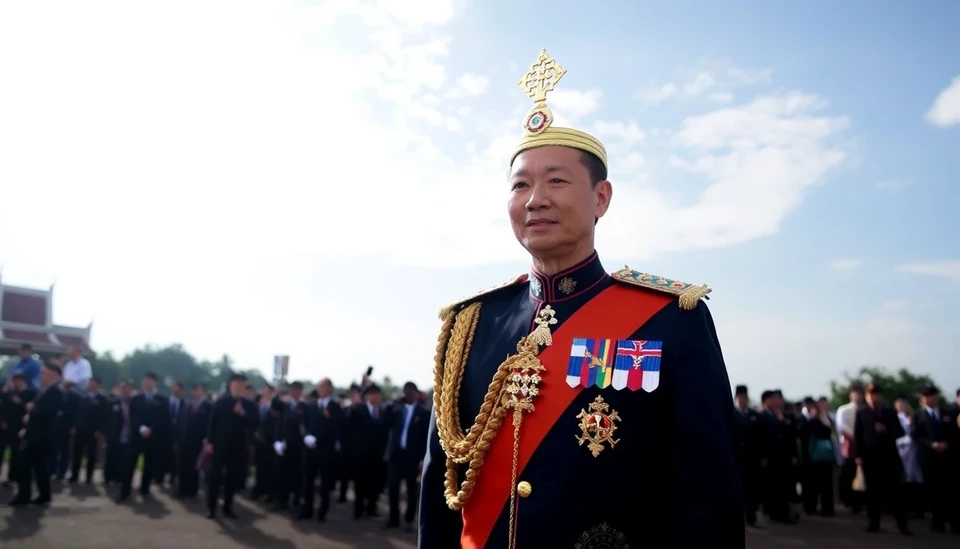
In a significant statement that challenges the traditional boundaries of the Thai monarchy, Prince Azzam, who was previously exiled, has spoken out, demanding that the royal family embrace criticism and greater transparency. His comments come at a time when Thailand grapples with deep-seated political tensions and public dissent toward the monarchy, particularly among the youth.
During a recent interview, Prince Azzam articulated his position, asserting that the monarchy must adapt to the evolving political landscape and that criticism should be viewed not as an act of disrespect, but as a necessary part of a democratic society. “In an age where communication is instant and public sentiment can rapidly shift, the royal family must be willing to engage with the public and respond to their concerns,” he stated, emphasizing the importance of accountability.
The Prince, who has spent years in exile following a fallout with the monarchy, expressed hope that his call for reform would resonate with younger generations who are increasingly vocal about their discontent with the establishment. His remarks come on the heels of widespread protests in Thailand, where demonstrators have called for constitutional reforms, curtailing the powers of the monarchy, and more democratic freedoms.
Thailand's royal family has historically been revered, and any criticism or questioning of its integrity has often been met with harsh penalties. However, there appears to be a shift in public sentiment, especially among the nation's youth. The rise of social media has allowed for more open discussions about the monarchy and its role in society, which Prince Azzam acknowledges as a positive development.
The call for criticism also suggests a potential change in how Thais view the monarchy's relationship with democracy. For years, the Thai royal family has been portrayed as a central figure in the country's political landscape, often seen as a stabilizing force. However, as more citizens advocate for democratic reforms, the question arises about how the monarchy can coexist with these demands for change.
Prince Azzam’s push for reform reflects a growing realization that a more transparent and open royal family could lead to better harmony between the monarchy and the people. “It is essential that the royal family understands the pulse of the nation and acknowledges that their role should evolve with the changing times,” he remarked.
This unprecedented appeal by an exiled royal is causing ripples across Thailand, prompting discussions about the future of the monarchy and its acceptance of public scrutiny. While King Maha Vajiralongkorn remains popular among some segments of society, the evolving political climate indicates that the institution itself may need to reassess its approach to governance and public engagement.
As Thailand moves forward, the implications of Prince Azzam's comments could play a pivotal role in shaping public dialogue regarding the monarchy's place in a constitutional democracy. Whether the royal family will heed this call for reform remains to be seen, but it certainly signifies a monumental shift in how discussions surrounding the monarchy are approached.
Ultimately, the future of the Thai monarchy, paired with the demands for democratic reforms, highlights an ongoing tension that may define Thailand's political landscape in the years to come. As calls for criticism grow louder, the monarchy faces a choice: resist and preserve the status quo, or adapt to foster a stronger connection with a populace that increasingly desires respect and transparency.
#Thailand #Monarchy #PrinceAzzam #RoyalFamily #Democracy #PoliticalReforms #YouthProtests #Transparency
Author: Laura Mitchell




